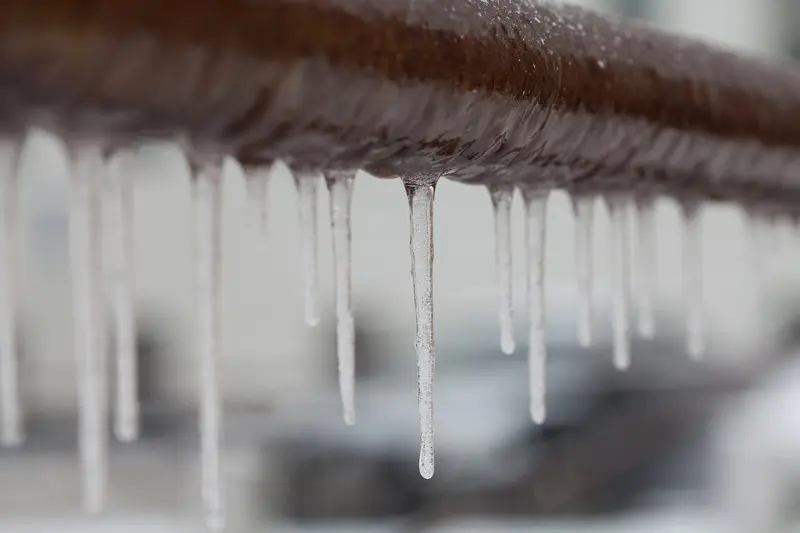If you’ve lived in the Espanola area for even just a year, then you know we’re notorious for our hot summers, one of which we’re just now coming out of and greeting cooler temperatures with joy. Of course, if you’re an Espanola resident you also know that our mild temperatures don’t last long. We go from one extreme to the other pretty quickly!
This means that you need to move fast in order to protect and prepare your home before winter arrives. Are drafty doors going to allow warm air to escape from your home? How’s your indoor air quality—could you use a dehumidifier this winter? And last but absolutely not least, is your plumbing prepared for the season? Just a couple consecutive days of below 30°F temperatures can result in frozen pipes, which is a much bigger deal than you may realize.
The Problem with Frozen Pipes
It might be obvious why frozen pipes are a problem—it prevents you from using the affected area of plumbing. But what if we told you that’s not your biggest problem? What we mean is that the danger of frozen pipes actually comes from when they are thawing.
The thawing process creates pressure within the pipes, which can and will cause pipe ruptures, a.k.a burst pipes. For this reason, we do not recommend trying to thaw them on your own. You could end up with damaged pipes, significant water damage, and worst of all, injury to yourself.
Can Frozen Pipes Be Prevented?
Yup! That’s why you’re reading this right now—we want to tell you how to avoid this problem altogether.
Drain Your Outdoor Faucets and Leave Them Open: These are, naturally, the pipes most susceptible to freezing. If you have any outdoor faucets that you use for your sprinkler system or hoses, be sure to turn off the water flow to these points, and leave them open.
Disconnect Your Hoses: Just like your outdoor faucets, these are prone to freezing, which you don’t want backing up into the faucets and pipes the hoses are attached too. Drain the hose, and store it indoors if possible, or at least in your garage or shed.
Insulate Your Pipes: This doesn’t take a lot of time or money—just simply purchasing some insulating sleeves (or even towels) to put around pipes prone to freezing. This includes pipes in your basement, underneath your kitchen and bathroom sinks, and anywhere that a pipe leads outdoors (this might also include your washing machine—keep that in mind!)
Keep Your Cabinets Open: We’re talking about those cabinets that have pipes within them—like the pipes under the sink in your bathrooms and kitchen area. This allows the heat from your heating system to reach these areas making it less likely for the pipes to have problems with the cold. This is especially true if these rooms have walls that face the outdoors, and pipes behind those walls.








